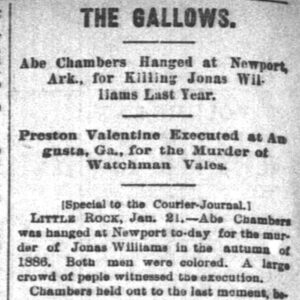 Abe Chambers Execution Story
Abe Chambers Execution Story
Time Period: Post-Reconstruction through the Gilded Age (1875 - 1900) - Starting with A
 Abe Chambers Execution Story
Abe Chambers Execution Story
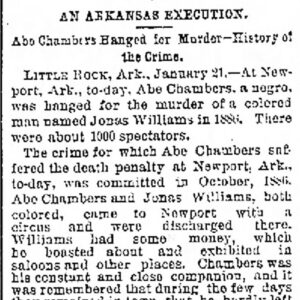 Abe Chambers Execution Story
Abe Chambers Execution Story
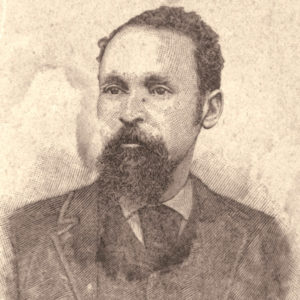 B. F. Adair
B. F. Adair
Adair, Benjamin Frank
 Bliss Adkisson
Bliss Adkisson
 Cyrus Adler
Cyrus Adler
Adler, Simon
Adventures of Huckleberry Finn (Arkansas Sections of)
African American Legislators (Nineteenth Century)
Agricultural Wheel
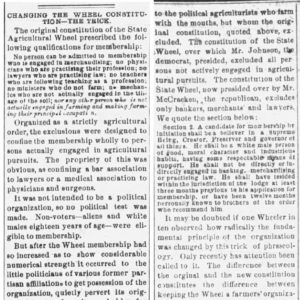 Agricultural Wheel Article
Agricultural Wheel Article
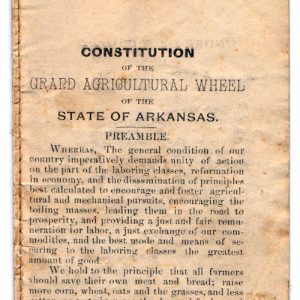 Agricultural Wheel Constitution
Agricultural Wheel Constitution
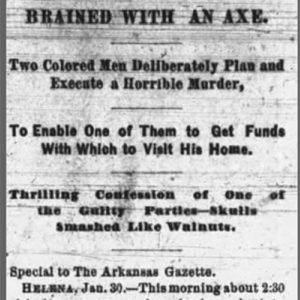 Akles Murders Story
Akles Murders Story
Akles, David (Execution of)
Albert Pike Memorial Temple
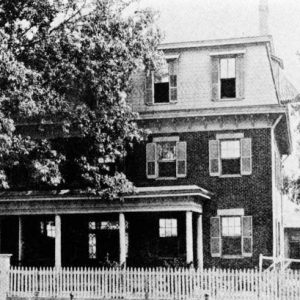 Alexander George House
Alexander George House
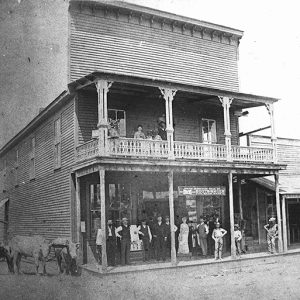 Alexander Hotel
Alexander Hotel
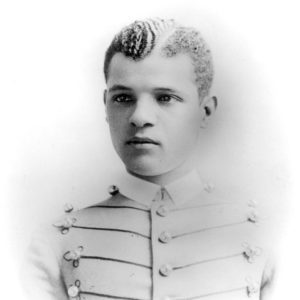 John Hanks Alexander
John Hanks Alexander
Alexander, John Hanks
Allen, Henry (Lynching of)
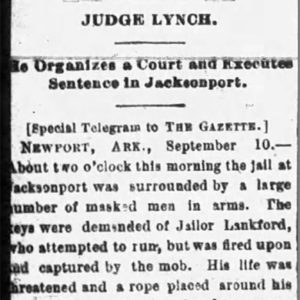 Henry Allen Lynching Article
Henry Allen Lynching Article
Allsopp, Fred
 Shelton Alsup
Shelton Alsup
Ames, Wyatt (Lynching of)
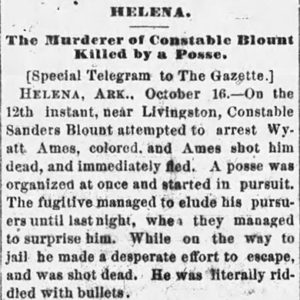 Wyatt Ames Lynching Article
Wyatt Ames Lynching Article
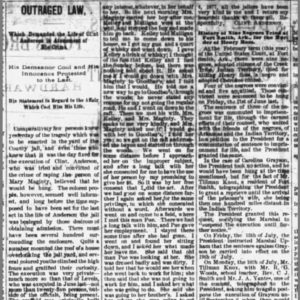 Anderson Execution Story
Anderson Execution Story
Anderson, Clint (Execution of)
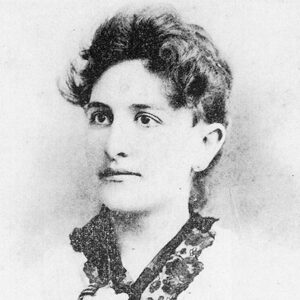 Effie Anderson
Effie Anderson
Anderson, Frederick Tanqueray
 James Anderson Lynching Article
James Anderson Lynching Article
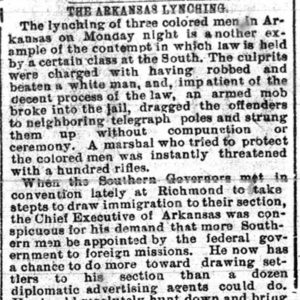 Anti-Lynching Editorial
Anti-Lynching Editorial
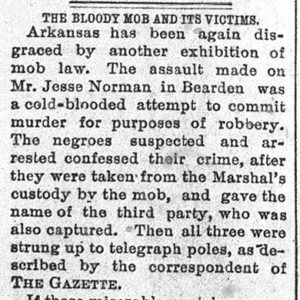 Anti-Lynching Editorial
Anti-Lynching Editorial
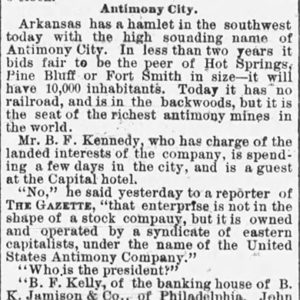 Antimony City Article
Antimony City Article
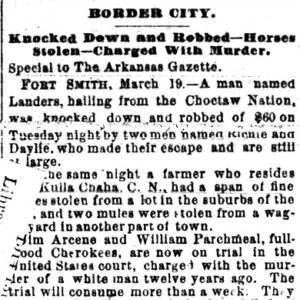 Arcene Accusation Story
Arcene Accusation Story
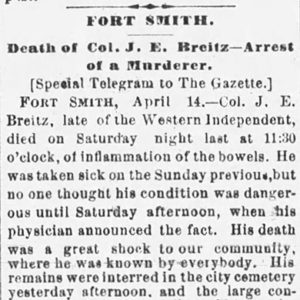 Arcene Arrest Story
Arcene Arrest Story
Arcene, James
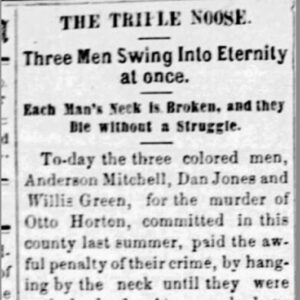 Arkadelphia Executions Article
Arkadelphia Executions Article
Arkadelphia Executions of 1889
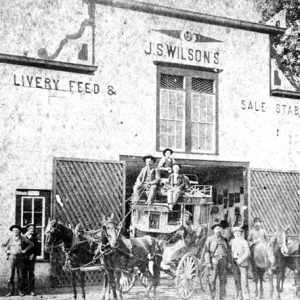 Arkadelphia Livery Stable
Arkadelphia Livery Stable
Arkadelphia Lynching of 1879
aka: Lynching of Daniels Family
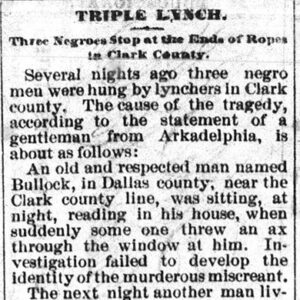 Arkadelphia Lynching Article
Arkadelphia Lynching Article
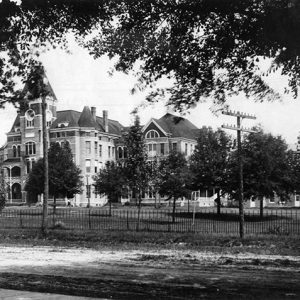 Arkadelphia Methodist College
Arkadelphia Methodist College
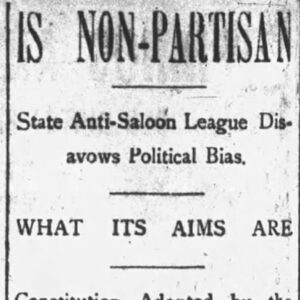 Arkansas Anti-Saloon League Article
Arkansas Anti-Saloon League Article
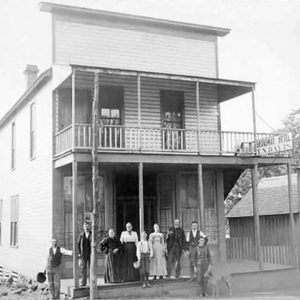 Arkansas Broadway Hotel
Arkansas Broadway Hotel
 Arkansas Building, 1876
Arkansas Building, 1876
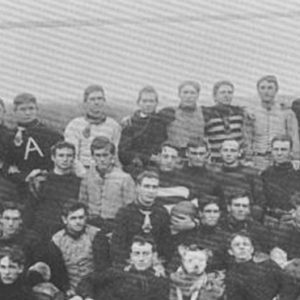 Arkansas Cardinals
Arkansas Cardinals
Arkansas Christian College
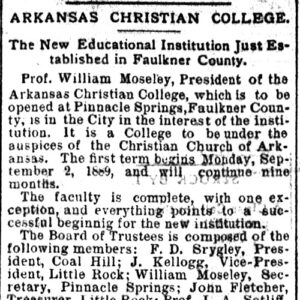 Arkansas Christian College
Arkansas Christian College
Arkansas Confederate Home
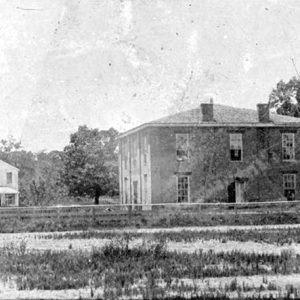 Arkansas County Courthouse
Arkansas County Courthouse




